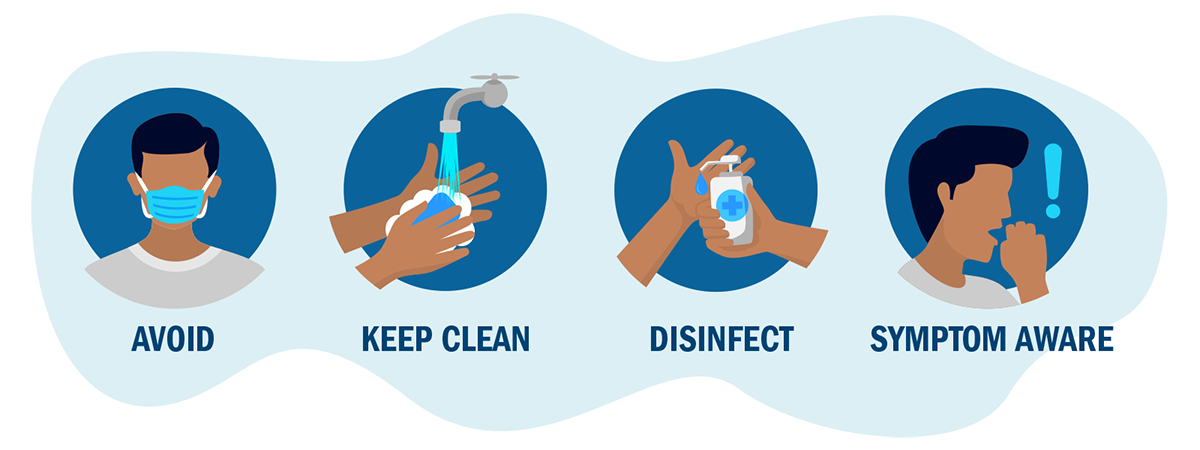Various places are affected by bird flu that is a viral infection caused by Type A viruses. Bird flu is mostly reported in birds, but it has the potential to affect humans also. As per the information of the World Health Organization, H5N1 is common virus found in humans in 1997. And, at that time it has killed around 60% who were infected.
Now, let’s discuss bird flu or avian influenza:
What Does Bird Flu Mean?
Bird flu is also known as avian influenza that is a viral infection, and it not only infects birds, but also humans and animals. There are some common forms of viruses that are commonly found in birds.
When we talk about bird flu, H5N1 will be considered. Well, H5N1 can deadly affect birds and spread in humans and other animals easily. Humans get affected by bird flu when they directly or indirectly get in contact with infected birds (live or dead poultry). Bird flu was first found in geese in China in 1996.
How Bird Flu Spreads in Birds?
Virus is an infection that is detected in birds, and this virus occurs naturally among wild aquatic birds worldwide. It can also infect domestic poultry and other species and animals. Basically, the avian influenza A virus infects their intestine and respiratory tracts. Avian influenza A is transmissible among birds and can kill certain domestic birds, including ducks, chickens, and turkeys.
Avian influenza A virus can be shed by infected birds in their nasal secretions, saliva, and feces. Vulnerable birds get infected when they get in contact with the virus as it is discharged by infected birds.
How Does Bird Flu Spread in Humans?
There are rare cases when humans get infected by virus. But when they get infected, then it can be deadly. As you know, infected birds shed avian influenza virus in their mucous, saliva, and faces. Humans get infected by any virus when the virus gets into a person’s mouth, nose, or eyes. If a virus is in the air, and when person breaths in, then humans get infected. Or, when a person touches something that is infected and then touches his/her mouth, then it can occur.
Symptoms of Bird Flu
Virus symptoms can occur within two to seven days after infection, but it depends on the type. Symptoms may include:
- Cough
- Sneezing
- Diarrhea
- Headache
- Muscle pain
- Sore throat
- Respiratory problem
- Runny nose
- Vomiting
- Fever (100.4F or above 38C)
- Insomnia
- Eye infection
Treatment for Bird Flu
The common flu drugs zanamivir (Relenza), oseltamivir (Tamiflu), or peramivir (Rapivab) can work against Virus. These medications can be followed within two days after the exposure.
If it is confirmed that someone is suffering from virus, then neuraminidase inhibitors must be prescribed. Another option is to be isolated if you are suffering from bird flu to avoid spreading it.
What Safety Measures Need to Follow?

Apart from the above antiviral treatment, there are some common safety measures that can be followed:
- Wash your hands daily and dry gently
- Avoid getting in contact with a sick person
- Stop touching one’s nose, eyes, or mouth
- If you are having symptoms, then try self-isolation
- When you sneeze or cough, try to cover your face
- Stop eating partially cooked poultry products
- Avoid close contact with infected birds and animals, especially their saliva and other secretions.Read: The do’s and don’ts of Exercising in a face mask
What Risk Factors are Associated with Bird Flu?
The risk factors for contracting the suspected bird or places/surfaces contaminated by their saliva, feathers, or droppings. People who are at great risk of virus:
- A poultry farmer
- Travelers who visit the affected area
- If you eat undercooked eggs or chicken
- A person works as healthcare worker for infected patients
- If you are a member of an infected person
Travelers or people, who live in the state or country with the outbreak of avian influenza, must avoid contact with animals that live in poultry markets. Food safety hygiene such as washing hands. Travelers that return from an affected area must report to health services if they get any symptoms of avian influenza.
Some people are at higher risk of developing virus, including:
- Adults with age more than 65
- People who have a weak immune system
- Children of age 5 and especially under 6 months
- Pregnant women
- People that suffer from chronic diseases, such as kidney disease, asthma, diabetes, and heart disease.
Final Thoughts on Bird Flu
Birds also get flu same as humans get. Mostly, bird flu infects birds, but in rare cases, humans also get infected. Most of the time, humans get infected when they contact suspected birds. You can prevent yourself from bird flu by following the above preventions or safety tips.



